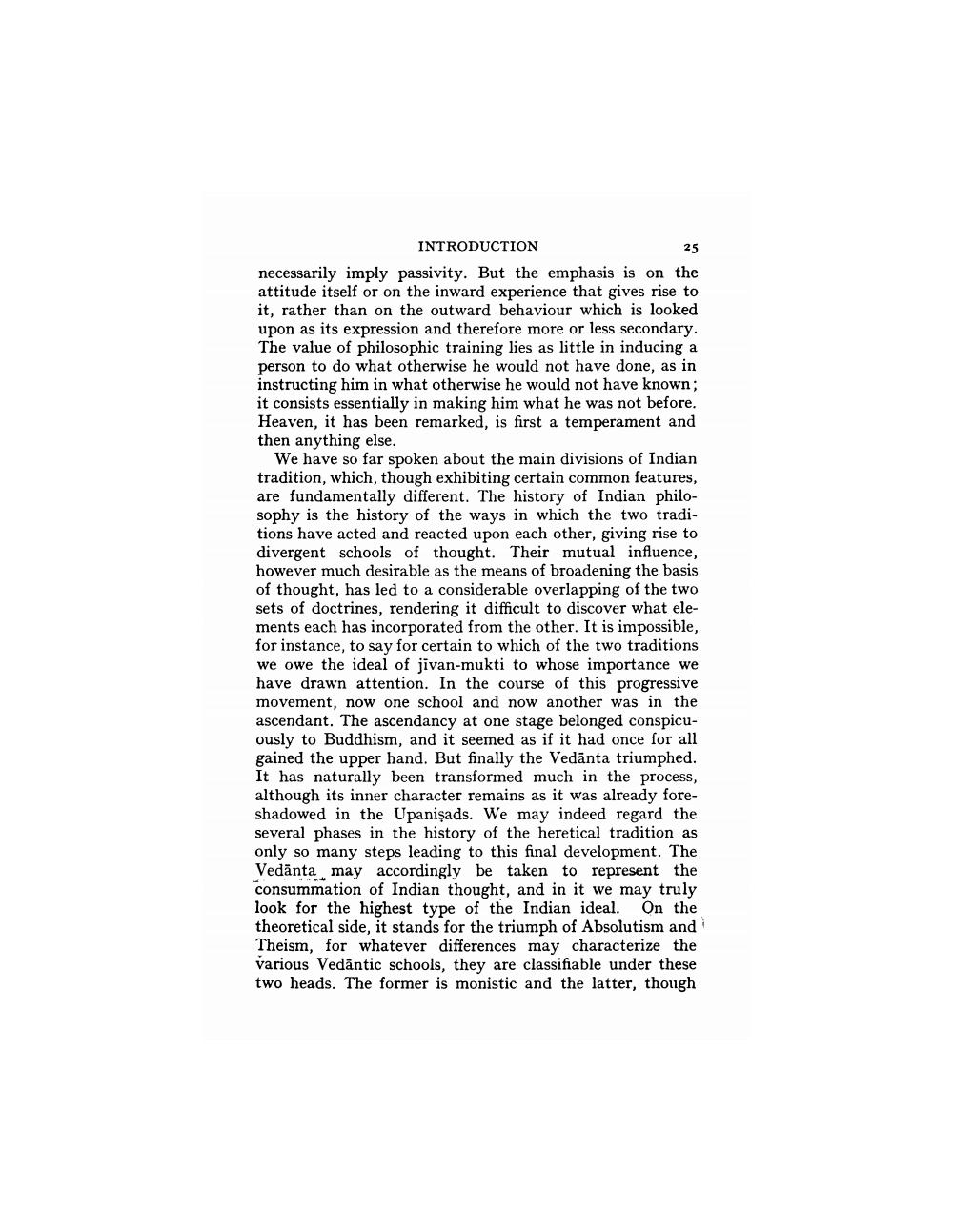________________
25
INTRODUCTION necessarily imply passivity. But the emphasis is on the attitude itself or on the inward experience that gives rise to it, rather than on the outward behaviour which is looked upon as its expression and therefore more or less secondary. The value of philosophic training lies as little in inducing a person to do what otherwise he would not have done, as in instructing him in what otherwise he would not have known; it consists essentially in making him what he was not before. Heaven, it has been remarked, is first a temperament and then anything else.
We have so far spoken about the main divisions of Indian tradition, which, though exhibiting certain common features, are fundamentally different. The history of Indian philosophy is the history of the ways in which the two traditions have acted and reacted upon each other, giving rise to divergent schools of thought. Their mutual influence, however much desirable as the means of broadening the basis of thought, has led to a considerable overlapping of the two sets of doctrines, rendering it difficult to discover what elements each has incorporated from the other. It is impossible, for instance, to say for certain to which of the two traditions we owe the ideal of jivan-mukti to whose importance we have drawn attention. In the course of this progressive movement, now one school and now another was in the ascendant. The ascendancy at one stage belonged conspicuously to Buddhism, and it seemed as if it had once for all gained the upper hand. But finally the Vedānta triumphed. It has naturally been transformed much in the process, although its inner character remains as it was already foreshadowed in the Upanişads. We may indeed regard the several phases in the history of the heretical tradition as only so many steps leading to this final development. The Vedānta may accordingly be taken to represent the consummation of Indian thought, and in it we may truly look for the highest type of the Indian ideal. On the theoretical side, it stands for the triumph of Absolutism and Theism, for whatever differences may characterize the various Vedāntic schools, they are classifiable under these two heads. The former is monistic and the latter, though




